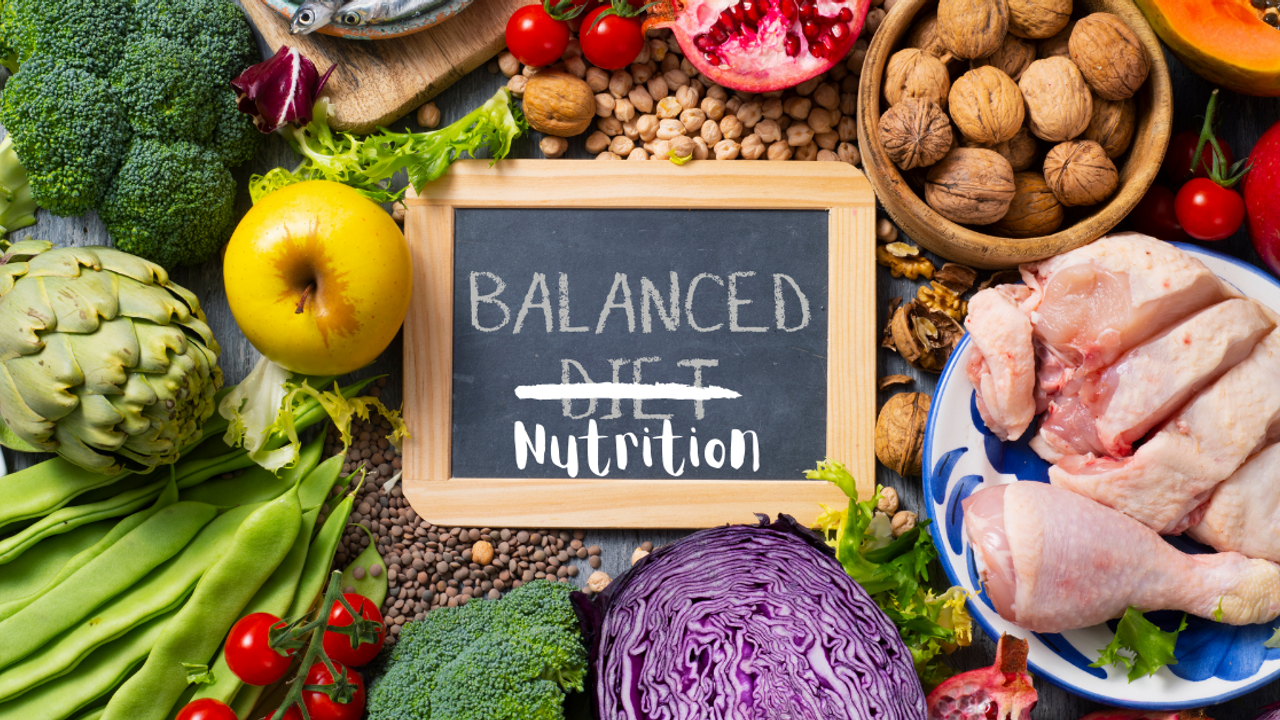Balanced Nutrition 101: The Basics

One thing we can't stress enough is the understanding that a "diet" is something you follow short-term, while a balanced "nutrition" plan ensures you're including a variety of foods in certain quantities and proportions so that your requirement for carbohydrates, proteins, minerals, vitamins, and alternative nutrients will be met within the parameters of your specific caloric needs – ALWAYS.
It’s not only the type of food but the ingredients that make it nutritious. So, it becomes a no-brainer then that in order to maintain good health, limit your consumption of empty calories, and instead try to get your calories from foods that maximize nutritional value.
For example, a homemade pizza with a natural food base and plenty of fresh veggies on top may be a healthy choice. In contrast, premade pizzas and other highly processed foods often contain empty calories and can not only sabotage your waistline but your over-all health too.
Nutrition Is A Balancing Act: How to Do It
A healthy, balanced nutrition plan will usually include the following nutrients:
- vitamins, minerals, and antioxidants
- carbohydrates, including starches and fiber
- protein
- healthy fats
A balanced nutrition plan will include a variety of foods from the following groups:
- fruits
- vegetables
- grains
- dairy
- protein foods
Foods to avoid or limit on a healthy nutrition plan include:
- highly processed foods
- refined grains
- added sugar and salt
- red and processed meat
- alcohol
- trans fats
How to Know If Your Nutrition Plan Is Balanced
Maintaining a stable healthy weight, having low blood cholesterol and healthy blood-pressure levels are just a few signs of being nutritionally balanced. If you notice sudden weight gain or lack of energy, it may be time for you to adjust your nutrition plan.
Balancing Nutrition and Weight
When exercising, if you feel tired halfway through your workout, you may not be eating enough. If you are gaining weight, you might be eating too much. Either way, your meal plan is not balanced, and the calories you ingest do not match the calories you expend. It takes 3,500 calories from the food you eat to gain 1 pound of body weight. Losing 1 pound per week requires you to cut 500 calories from your daily meal plan, burn 500 calories per day or a combination of both. If you are unintentionally losing weight, have a healthy snack in the afternoon before you head to the gym, for example.
The extra 200 to 300 calories may be enough to boost your energy levels. Your nutrition plan is most likely in balance once you’re able to maintain a stable weight. And remember, for best results you need to follow a balanced NUTRITION plan to maximize sustainability, not a DIET!
These are just some basics. Follow our blogs for past and upcoming articles that will provide a more detailed breakdown of many fitness and wellness topics such as how to optimize weight loss, bolster your fitness, and build muscle. Always keep in mind that what’s healthy for one person may not be suitable for another.
See you next week!
Stay connected with news and updates!
Join our mailing list to receive the latest news and updates from our team.
Don't worry, your information will not be shared.
